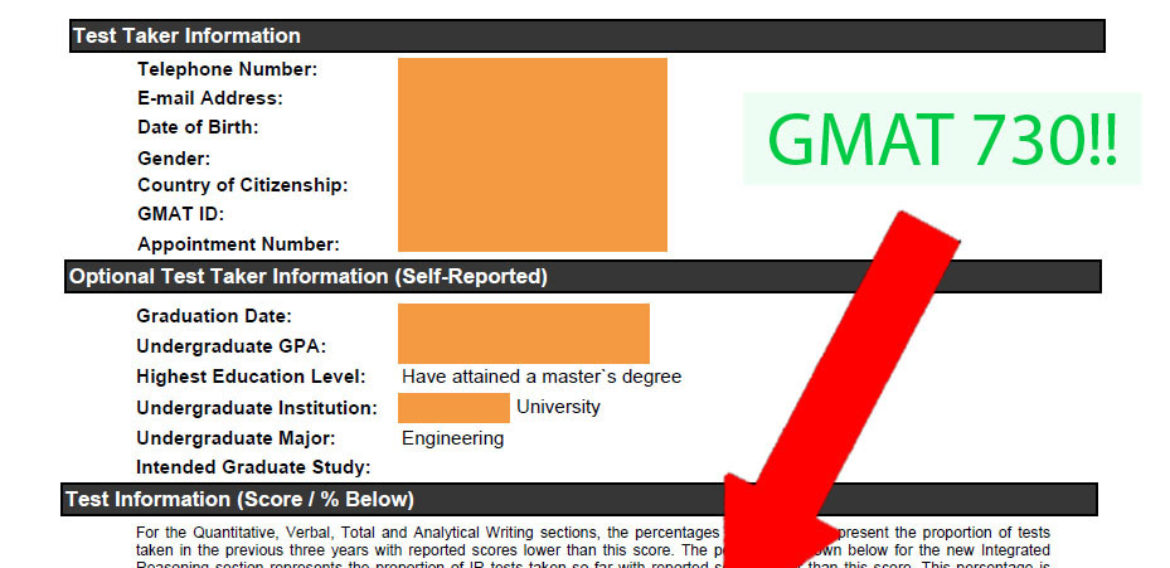Top Tips to Improve Your GMAT Score
The Internet is crammed full of information, helpful and ineffective, about mastering the GMAT and getting the score that you want. So how can you figure out what you should actually be doing before test day? A lot of it has to do with evaluation: what’s your learning style? Where are your strengths and weaknesses? And what kind of GMAT preparation will play to your strengths and help you work on your weaknesses in the most helpful way possible—for you. With that in mind, here are our top tips to work out a study plan that’s perfect for you and improve your GMAT score.
Choose the best materials for you. I can’t stress this “for you” part enough! There are great GMAT materials in a variety of forms. Most commonly, you’ll see books, classes, tutors, and online prep available. To really improve your GMAT score, you’ll need to make sure that you’re working not only with top materials, but also with the top materials (yes, here it comes)…for you. Do you learn best visually? Many people do. GMAT videos might be a lot more helpful than in-person lectures. On the other hand, you might learn best through talking, asking and answering questions. In that case, a tutor might be the best choice. Budgetary considerations do come into play (the basic rule of thumb is that any time you get another person involved in your GMAT prep, the more expensive it’s going to be), but there are options, online and in real life, that can help you reduce costs, from coupon codes to straight-on negotiating. After all, you’re going to business school, aren’t you?
Set a study schedule—and stick to it. Be really systematic about your GMAT prep. Of course, in order to do this, you’re going to have to be really honest with yourself, as well. Are you really going to give up your lunch hours to study? It’s totally fine (and maybe even healthier) not to, but then you can’t count that as an hour you’ll devote to study. Plan on taking at least one GMAT practice test a week; this is something that, no matter what your learning style, it’s important not to skip. Not only will this practice familiarize you with the GMAT fantastically, but it’ll also give you a sense of where your prep is or is not working for you.
Stock your “arsenal.” We all have different learning styles, but oftentimes (and particularly if you’ve hit a plateau in your GMAT practice test scores) using a variety of materials can help keep you sharp and boost your score. For example, if you’re using primarily book-based study tools, consider adding a handful of GMAT videos or apps to the mix. If you’re working with a tutor, turning to some of the excellent written materials out there can explain some of the same concepts to you in different ways, reinforcing your understanding of them. Yes, GMAT materials are expensive, but they don’t have to be—it’s worth seeking out the best material online to help mitigate costs.
Never make the same mistake twice. I know that’s a tall order, but it’s an excellent practice—both on the GMAT exam and in real life. By keeping records of the problems you get wrong, where you got them wrong (on a computer practice test? On an app? In a problem set?), and how to answer them correctly—and then keeping this log and studying it, you’re basically writing your own guide to getting a top GMAT score. Return to your GMAT log often and re-do the problems to see how you’re coming along and where you can still tweak your practice.
At the end of the day, there’s no one-size-fits-all approach to getting a top GMAT score, but there are guidelines you can use to make sure that you maximize your chances of getting your best score. By focusing on how you learn and where you need to improve, you can create a study plan as strong as the most expensive tutor’s that will be equally effective at getting you where you want to be.


